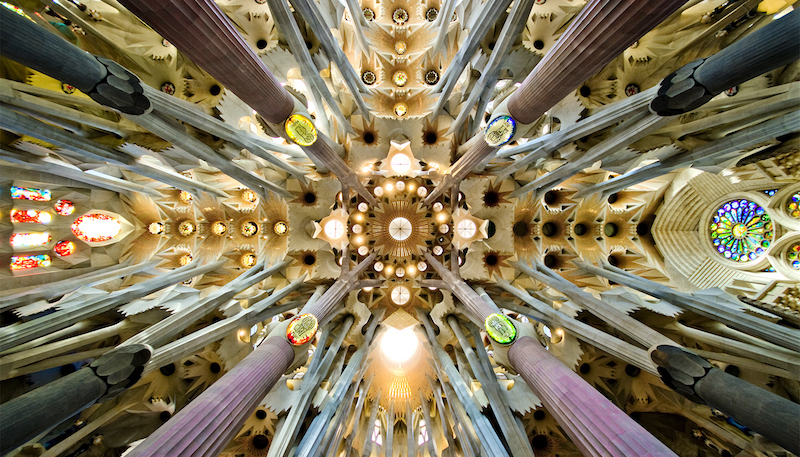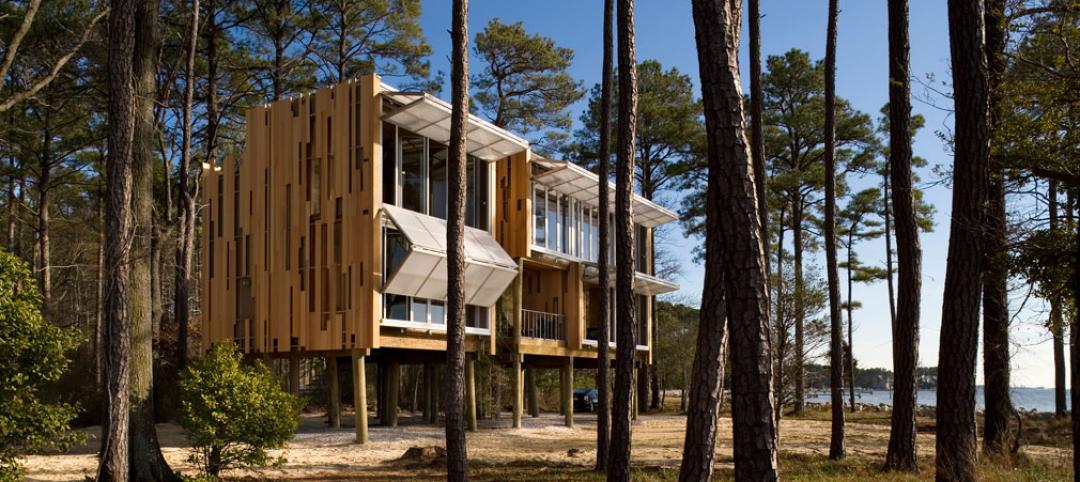It is said that travel broadens the mind, and beginning in 2017 the American Institute of Architects (AIA) is offering a new global travel program specifically focused on broadening the architectural mind.
Architectural Adventures, as the program has been dubbed, will offer small-group trips tailored for the discovery and appreciation of architecture. Every Architectural Adventures tour will feature subject-matter experts, hand-picked by the AIA, to guide travelers and enliven their awareness of the world’s architecture. The tour guides will offer an up-close view of not just the iconic landmarks and buildings in the various cities, but also an explanation of how the historical, political and cultural events helped shape the cityscapes.
Architectural Adventures provides individuals with the opportunity to participate in special excursions, gain exclusive behind-the-scenes access, and get insider knowledge to popular sights as well as lesser-known, yet equally fascinating architecture.
2017 destinations and highlights are listed below:
- Havana: In March, set forth on a six-day immersion in the Cuban capital that spans from Old Havana and the 16th century stone fort that guards Havana Bay to the city’s early twentieth-century Art Deco wonders and its most prominent contemporary projects.
- Barcelona: In March, discover Antoni Gaudí’s Modernist marvels and see the city’s medieval Gothic Quarter.
- Chicago: In April, explore the varied works of Frank Lloyd Wright and see why Chicago is known as the first city of American architecture.
- Lisbon to London: In April, cruise Europe’s Atlantic coast, stopping to see its most spectacular sites and structures, like the Frank Gehry-designed Guggenheim Museum in Bilbao, Spain and France’s Mont Saint-Michel.
- Northern Italy: In May, immerse yourself in the Renaissance world of Andrea Palladio and visit Venice for an exclusive tour of St. Mark’s Basilica.
- Cities of the Baltic Sea: In June, sail from Copenhagen to Gdansk to Tallinn to St. Petersburg to Helsinki to Stockholm, stopping to see the Baltic’s grandest designs.
- Along the Danube: In June, experience Central Europe’s signature cities, including Prague, Vienna, Bratislava, and Budapest.
- London: In July, wander London’s charming back streets and towering triumphs like Westminster Abbey and St. Paul’s Cathedral.
- Portugal and Northern Spain: In October, take an epic 17-day journey from Lisbon to Barcelona by way of the seminal cities of the Spanish Pyrenees.
- China: In October, spend two weeks exploring Chinese culture and design in Beijing, Pingyao, Hangzhou, and Shanghai.
Accommodations, most meals, tour transportation, and logistical details of the trip are included in the tours. For more details on booking availabilities and new trip announcements visit architecturaladventures.org.
Related Stories
Building Team | Feb 24, 2015
Call for entries: 2015 Giants 300 survey
The annual Giants 300 Report ranks the top AEC firms in commercial construction, by revenue.
Industrial Facilities | Feb 24, 2015
Starchitecture meets agriculture: OMA unveils design for Kentucky community farming facility
The $460 million Food Port project will define a new model for the relationship between consumer and producer.
University Buildings | Feb 23, 2015
Future-proofing educational institutions: 5 trends to consider
In response to rapidly changing conditions in K-12 and higher education, institutions and school districts should consider these five trends to ensure a productive, educated future.
Office Buildings | Feb 23, 2015
The importance of quiet and the consequences of distraction
Recent work style studies show that the average knowledge worker spends 25-35% of their time doing heads-down focused work. Once thrown off track, it can take some 23 minutes for a worker to return to the original task.
Modular Building | Feb 23, 2015
Edge construction: The future of modular
Can innovative project delivery methods, namely modular construction, bring down costs and offer a solution for housing in urban markets? FXFOWLE’s David Wallance discusses the possibilities for modular.
| Feb 23, 2015
6 trends changing the way city dwellers live
Across the cultural grid, from food to retail to transportation, America's urban areas are already undergoing a major metamorphosis. Here are the six major trends shaping our cities, from Fast Company.
Green | Feb 23, 2015
State of the green union, and the next big shift in sustainability
The history of the green movement offers cues that we are on the precipice of another significant shift in the green union.
| Feb 23, 2015
Where are the iconic green buildings?
What does a green building look like? How would you know one if you saw one? Maybe a trivial question to some, but of great interest to architects, designers, and other members of the Building Team as the rapid evolution of sustainable buildings continues apace.
Sports and Recreational Facilities | Feb 21, 2015
Pumped-up recreation centers help build body, mind, and spirit
Adopting facility layouts from Asian and European models, today’s sports and recreational buildings are becoming social hubs that accommodate a variety of community needs.
University Buildings | Feb 20, 2015
Penn strengthens campus security by reviving its surrounding neighborhood
In 1996, the University of Pennsylvania’s sprawling campus in Philadelphia was in the grip of an unprecedented crime wave. But instead of walling themselves off from their surrounding neighborhoods, the school decided to support the community.















